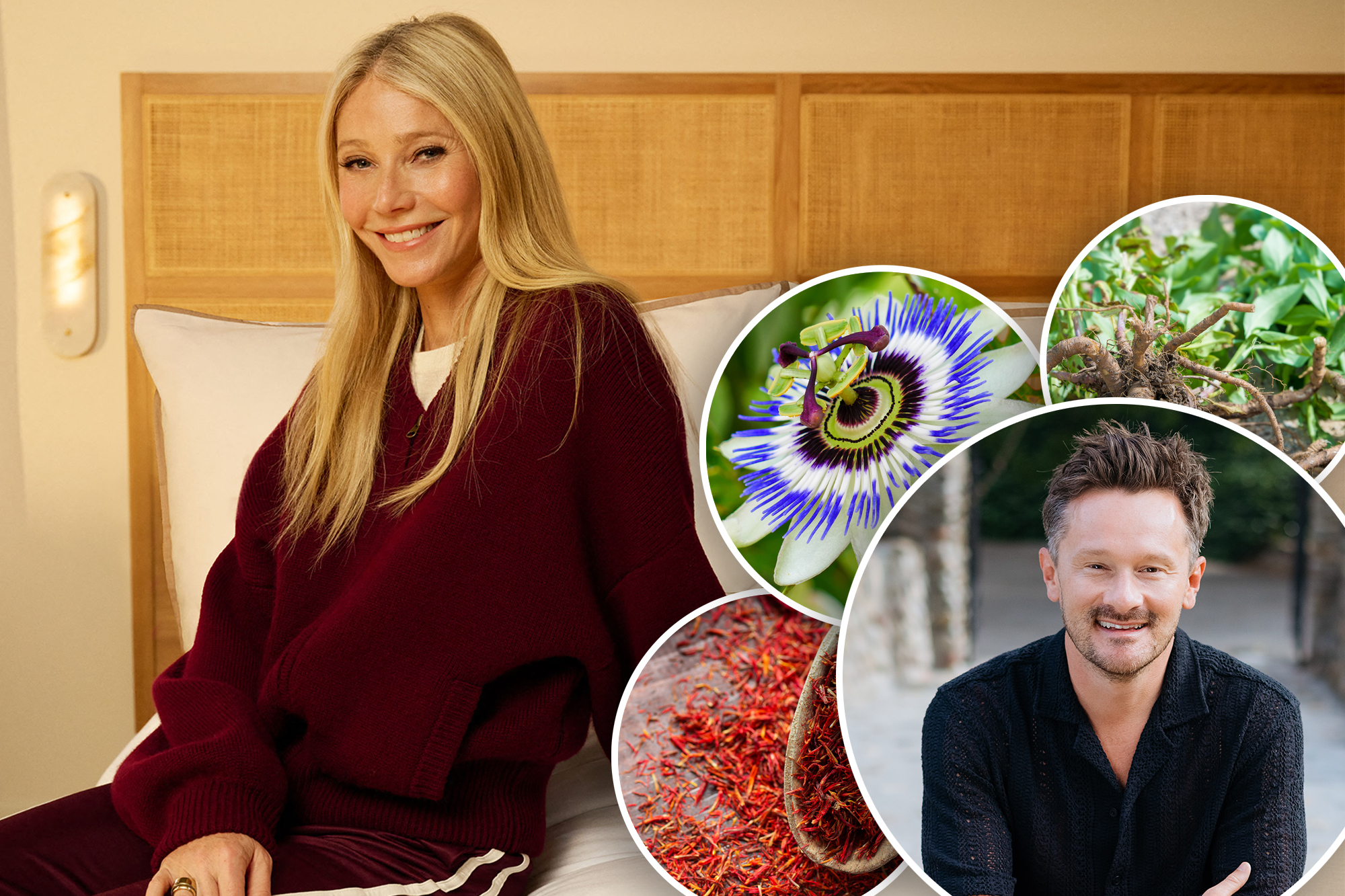
At least he is owning it.
A functional medical doctor who advised Gwyneth Paltrow, Sophia Bush, Cameron Diaz and other celebrities confesses that he stays late to see “survivor” or “real Beverly Hills” households with his wife.
“Doctors are the worst patients. Let us just be honest,” Dr. Will Cole the Post with a thorn.
Although he “falls asleep as a champion”, he admits he will not recommend his wind routine for his telephone patients.
If you have trouble sleeping, Cole suggests to appreciate your diet and practice breathing and meditation to support your vagus nerve. The vagus is the main nerve of the parasympathetic nerve system, which is responsible for the body’s “rest and digestion” functions.
Appendices are another strategy for sleep – and Cole has five favorites. The post had named him.
“Many of these natural remedies, they will not knock you as a medicine for sleep – they will help … to support a balanced nervous system,” he explained.
“Whether you are more wireless and hyper-valued, or you have problems that end at night, these tools are really useful for many people, even beyond improving sleep.”
Saffron
“Saffron would be at the top of my list,” said Cole, who wrote the book “Intestinal Feelings.”
Research suggests that the most expensive spice in the world, known as “red gold”, can improve sleep quality by reducing insomnia and promoting a more soothing nod.
Safranal can be the key. The composition of saffron boasts antioxidant properties, which can fight oxidizing stress by contributing to poor sleep.
Saffron is also believed to affect neurotransmitters such as serotonin, dopamine and norepinephrine, potentially raising mood and sleep. One study found that 100 milligrams (mg) a day were “the most appropriate dose”.
Magnesium
“I look at people’s laboratories all over the country, and most people are deficient in magnesium,” split Cole.
He called the magnesium “xanax of nature” because it calms the nervous system, relaxes the muscles and potentially regulates neurotransmitters and hormones involved in sleep, such as melatonin and GABA (gamma-aminobutric acid).
“Magnesium filling is a way to support [the] Rest, the digestive aspect of the nervous system, ”Cole said.
Magnesium glycime is often the most useful form of magnesium – and a daily dose between 200 and 400 mg tends to be the most popular for better sleep, said Susanne Soliman pharmacist, a brand partner made by nature.
L-theanine
“L-theanine would definitely be another supporting tool,” Cole said.
Holistic Health Consultant Tiri Lynn, resident health coach in retail Wellness of human consciousness, said it is safe to accumulate magnesium with L-theanine at night.
L-theanine-an amino acid found in green tea-is known to increase the activity of the alpha brain wave, relaxing the mind without causing drowsiness. It can also reduce stress hormone cortisol, which is of course supposed to be lower at night.
Lynn recommends taking L-theanine 30 minutes in an hour before you hit the hay. A 200 mg night dose can be more useful.
Valerian root
“Valerian Root, flower passion – these are some of my main favorites when it comes to supplements that have evidence to support sleep,” Cole said.
Soliman said Valerian Root increases GABA activity, alleviating the tension of the nervous system and anxiety that can disrupt sleep.
The recommended daily dose is 300 to 600 mg of standardized valerian root extract, taken one hour or two in front of the bed, she added.
Passion flowers
Passionflower promotes a relaxed mental state by increasing the soothing signals of the brain – making it easier to remove and stay asleep, said Lisa Barnes, vice president of research and development in the Lifevantage supplementary company.
It credits the active compounds of passionflower, especially flavonoids, which are thought to increase the level of GABA in the brain or amplify its activity.
The GABA system is like the brain pedal of the brain, helping to slow down neurons, Barnes said.
She said that an effective daily dose for sleep ranges from 250 to 500 mg of standardized extract or 1 to 2 grams of dried herb as a tea. Consume it 30 to 60 minutes before bed.
Before you get sleeping supplements
Check with your doctor before you start completing, especially if you take medication or have certain health conditions.
L-theanine, for example, can lower blood pressure. If someone is taking blood pressure medications, their pressure can go very low with L-theanine.
Magnesium acts as a laxative, so people with rectal bleeding or obstacles in the colon or their stomach should avoid it.
And pregnant women should give up sunflower because of its potential to stimulate uterine contractions.
People who receive sedative or anti-depression should use care, as many of these supplements can intensify the effects of those medicines, leading to potentially increased drowsiness and slow down breathing.
#Favorite #Gwyneth #Paltrow #Sleep #Annexes
Image Source : nypost.com